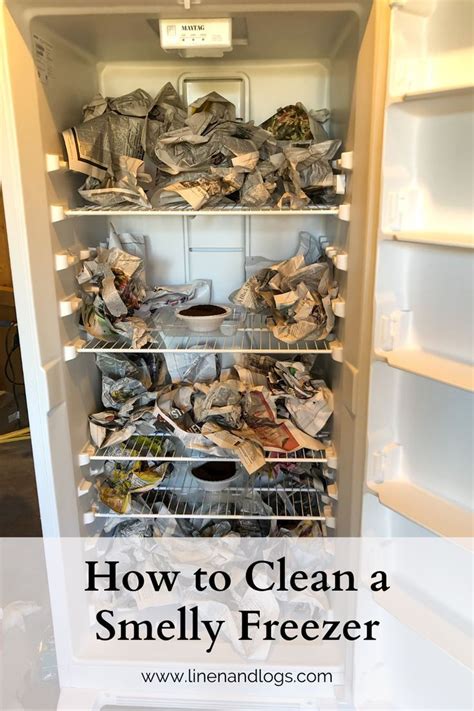How to Avoid Freezer Disasters and Meat Odors: A Comprehensive Guide
Freezer burn, mysterious smells, and that dreaded moment when you discover a forgotten, questionable package lurking in the icy depths – these are freezer nightmares we all want to avoid. Proper freezer organization and maintenance are key to preserving food quality and keeping your freezer smelling fresh. This guide provides practical tips and techniques to prevent freezer disasters and banish those lingering meat odors.
What Causes Freezer Burn?
Freezer burn occurs when food is exposed to cold, dry air. This causes the surface of the food to dry out and become discolored, affecting both texture and flavor. It's not harmful, but it significantly reduces food quality.
How to Prevent Freezer Burn:
- Proper Packaging: Airtight containers are crucial. Use freezer-safe bags, removing as much air as possible before sealing. Wrapping food tightly in plastic wrap before placing it in a bag or container offers an extra layer of protection.
- Portioning: Freezing food in smaller portions allows for quicker thawing and reduces the risk of freezer burn. Larger items take longer to freeze and thaw, increasing exposure to air.
- Labeling and Dating: Clearly label and date all items. This helps you use older items first, preventing them from spending too long in the freezer and developing freezer burn. Consider using a labeling system to easily identify contents and expiration dates.
- Freezing Temperature: Ensure your freezer is consistently at 0°F (-18°C) or lower. Regularly check the temperature using a reliable freezer thermometer.
How to Prevent Meat Odors in the Freezer:
Meat, especially strong-smelling items like fish, can impart their aroma to other food items in the freezer. This is a common complaint among many freezer owners.
Effective Strategies for Odor Control:
- Airtight Sealing: This is paramount. Even a slight gap in the packaging can allow odors to escape and contaminate other foods. Double-bagging meat is a good idea, especially for stronger-smelling items.
- Strategic Placement: Keep strong-smelling meats on lower shelves or at the back of the freezer, away from more delicate foods. This minimizes the risk of odor transfer.
- Absorbing Odors: Place an open box of baking soda or activated charcoal in the freezer. These absorb odors effectively. Replace them every few months or when they appear to be saturated.
- Clean Regularly: Periodically defrost and clean your freezer to remove lingering odors. Wipe down shelves and walls with a mild detergent solution, then rinse thoroughly and dry completely before refreezing.
How Long Can Food Safely Stay in the Freezer?
The length of time food can safely stay in the freezer depends on the type of food. However, it is essential to remember that even properly stored frozen food will eventually lose quality over time.
Food Storage Times (General Guidelines):
- Meat (Beef, Pork, Poultry): 6-12 months
- Seafood: 3-6 months
- Fruits and Vegetables: 8-12 months
What Should I Do if I Find Freezer Burn?
While freezer burn doesn't make food unsafe to eat, it significantly impacts its quality.
Dealing with Freezer Burn:
- Trim the Affected Areas: Carefully cut away any discolored or dried-out portions of the food.
- Use Quickly: Food with freezer burn should be used as soon as possible to prevent further deterioration.
- Don't Refreeze: Once thawed, food with freezer burn should not be refrozen.
How Often Should I Defrost My Freezer?
The frequency of defrosting your freezer depends on the type of freezer you have (frost-free or manual defrost). Frost-free freezers rarely require manual defrosting, while manual defrost freezers need regular defrosting to prevent excessive ice buildup.
Defrosting Tips:
- Follow Manufacturer Instructions: Always consult your freezer's manual for specific instructions on defrosting.
- Safe Thawing Methods: Thaw frozen food safely in the refrigerator or using the defrost setting on your microwave. Never thaw at room temperature.
By following these guidelines, you can significantly reduce the risk of freezer disasters and maintain a fresh-smelling freezer, ensuring your food stays delicious and safe. Remember, regular maintenance and proper storage are key to preserving food quality and avoiding unwanted surprises.

